Hyundai i30 Wagon vs Toyota Corolla Touring Sports - Differences and prices compared
Compare performance (140 HP vs 178 HP), boot space and price (24800 £ vs 29600 £ ) at a glance. Find out which car is the better choice for you – Hyundai i30 Wagon or Toyota Corolla Touring Sports?
Costs and Efficiency:
Price and efficiency are key factors when choosing a car – and this is often where the real differences emerge.
Hyundai i30 Wagon has a to a small extent advantage in terms of price – it starts at 24800 £ , while the Toyota Corolla Touring Sports costs 29600 £ . That’s a price difference of around 4757 £.
Fuel consumption also shows a difference: Toyota Corolla Touring Sports manages with 4.40 L and is therefore noticeable more efficient than the Hyundai i30 Wagon with 5.70 L. The difference is about 1.30 L per 100 km.
Engine and Performance:
Power, torque and acceleration say a lot about how a car feels on the road. This is where you see which model delivers more driving dynamics.
When it comes to engine power, the Toyota Corolla Touring Sports has a distinct edge – offering 178 HP compared to 140 HP. That’s roughly 38 HP more horsepower.
In acceleration from 0 to 100 km/h, the Toyota Corolla Touring Sports is distinct quicker – completing the sprint in 7.50 s, while the Hyundai i30 Wagon takes 9.80 s. That’s about 2.30 s faster.
In terms of top speed, the Hyundai i30 Wagon performs slight better – reaching 197 km/h, while the Toyota Corolla Touring Sports tops out at 180 km/h. The difference is around 17 km/h.
Space and Everyday Use:
Beyond pure performance, interior space and usability matter most in daily life. This is where you see which car is more practical and versatile.
Both vehicles offer seating for 5 people.
In curb weight, Hyundai i30 Wagon is slightly lighter – 1316 kg compared to 1485 kg. The difference is around 169 kg.
In terms of boot space, the Hyundai i30 Wagon offers hardly perceptible more room – 602 L compared to 596 L. That’s a difference of about 6 L.
In maximum load capacity, the Hyundai i30 Wagon performs minimal better – up to 1650 L, which is about 44 L more than the Toyota Corolla Touring Sports.
When it comes to payload, Hyundai i30 Wagon somewhat takes the win – 524 kg compared to 440 kg. That’s a difference of about 84 kg.
Who wins the race in the data check?
The Toyota Corolla Touring Sports is clearly superior overall in the objective data comparison.
This result only shows which model scores more points on paper – not which of the two cars feels right for you.
Costs and Consumption
View detailed analysis
Engine and Performance
View detailed analysis
Dimensions and Body
View detailed analysis
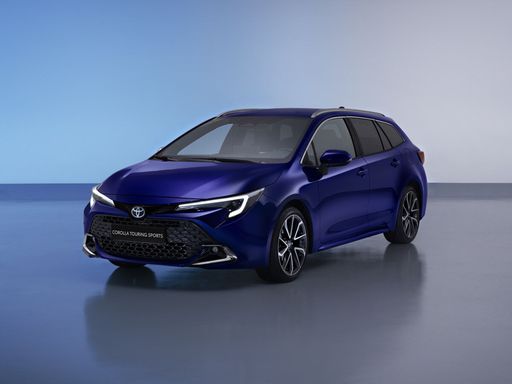
Toyota Corolla Touring Sports
Hyundai i30 Wagon
The Hyundai i30 Wagon is a practical family hauler that pairs roomy, sensible packaging with clean, modern lines and a surprisingly composed chassis. Comfortable, well-equipped and priced to make rivals sweat, it quietly ticks the boxes for daily life and weekend escapes while still managing a little grin on twisty roads.
details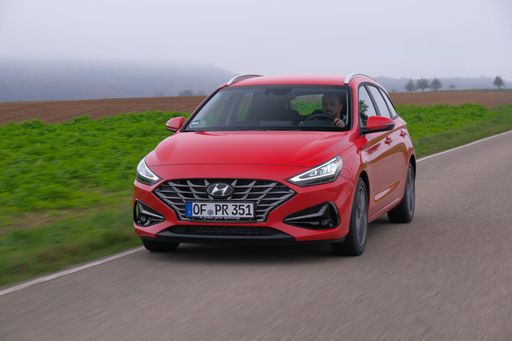
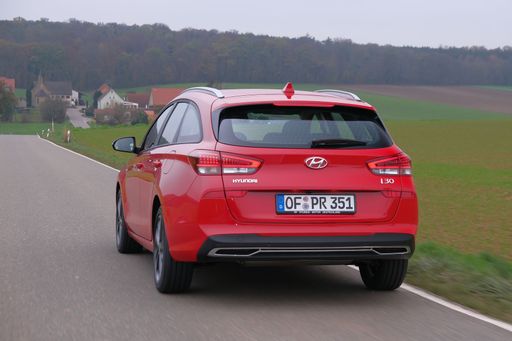
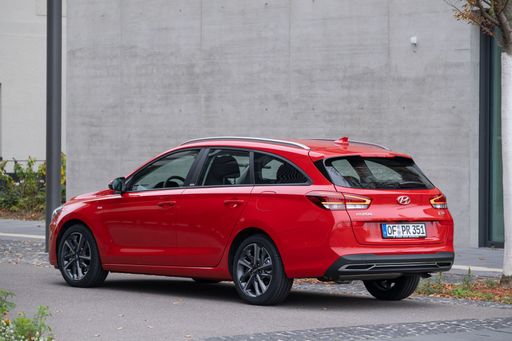
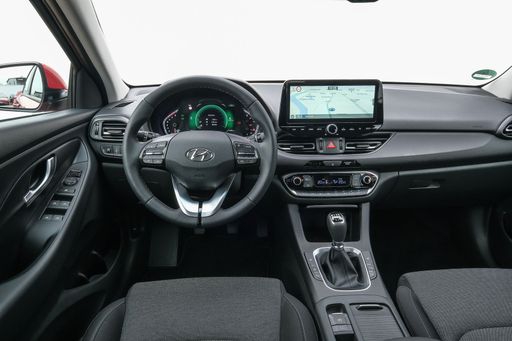
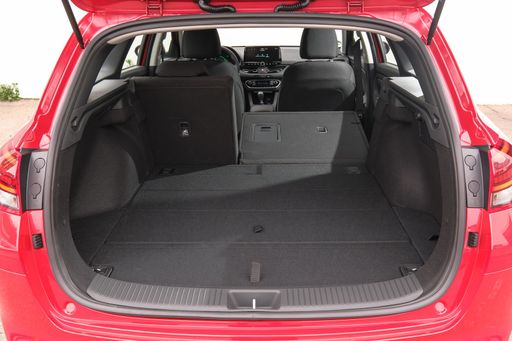
Toyota Corolla Touring Sports
The Toyota Corolla Touring Sports is a sensible yet stylish estate that blends everyday practicality with Toyota's trademark reliability, making it the kind of car that quietly gets on with family life without drama. Inside it's cleverly packaged for luggage and kids' gear and feels calm and comfortable on the road — sensible rather than flashy, but with enough character to make daily drives more enjoyable.
details
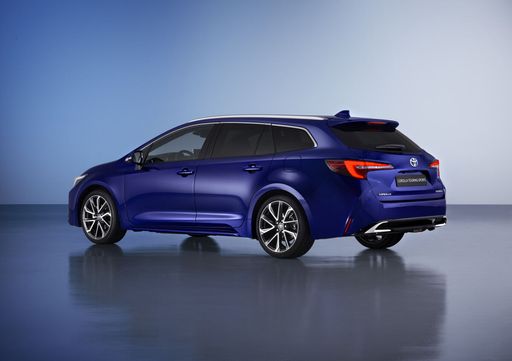
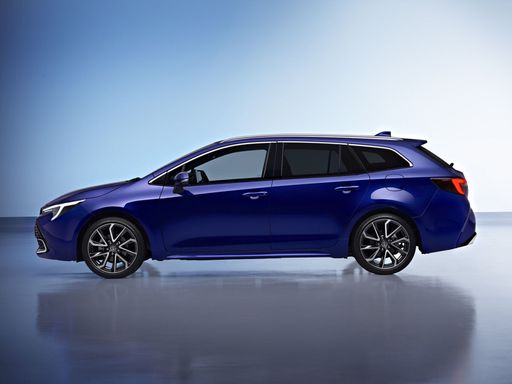
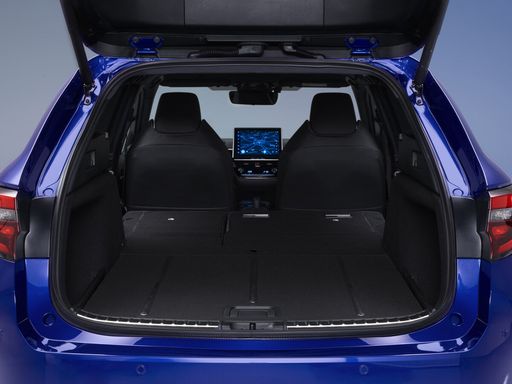
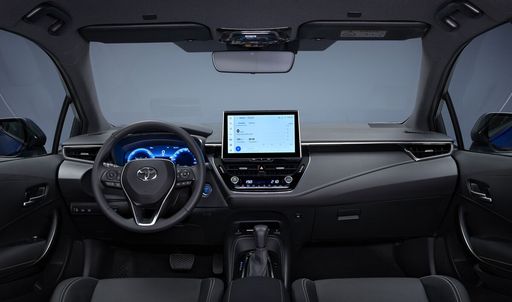
Costs and Consumption |
|
|---|---|
|
Price
24800 - 30100 £
|
Price
29600 - 36400 £
|
|
Consumption L/100km
5.7 - 6 L
|
Consumption L/100km
4.40 L
|
|
Consumption kWh/100km
-
|
Consumption kWh/100km
-
|
|
Electric Range
-
|
Electric Range
-
|
|
Battery Capacity
-
|
Battery Capacity
-
|
|
co2
130 - 136 g/km
|
co2
100 g/km
|
|
Fuel tank capacity
50 L
|
Fuel tank capacity
43 L
|
Dimensions and Body |
|
|---|---|
|
Body Type
Estate
|
Body Type
Estate
|
|
Seats
5
|
Seats
5
|
|
Doors
5
|
Doors
5
|
|
Curb weight
1316 - 1461 kg
|
Curb weight
1485 - 1515 kg
|
|
Trunk capacity
602 L
|
Trunk capacity
581 - 596 L
|
|
Length
4585 mm
|
Length
4650 mm
|
|
Width
1795 mm
|
Width
1790 mm
|
|
Height
1475 mm
|
Height
1435 mm
|
|
Max trunk capacity
1650 L
|
Max trunk capacity
1591 - 1606 L
|
|
Payload
439 - 524 kg
|
Payload
400 - 440 kg
|
Engine and Performance |
|
|---|---|
|
Engine Type
Petrol, Petrol MHEV
|
Engine Type
Full Hybrid
|
|
Transmission
Manuel, Automatic
|
Transmission
Automatic
|
|
Transmission Detail
Manual Gearbox, Dual-Clutch Automatic
|
Transmission Detail
CVT
|
|
Drive Type
Front-Wheel Drive
|
Drive Type
Front-Wheel Drive
|
|
Power HP
100 - 140 HP
|
Power HP
140 - 178 HP
|
|
Acceleration 0-100km/h
9.8 - 13.3 s
|
Acceleration 0-100km/h
7.5 - 9.2 s
|
|
Max Speed
178 - 197 km/h
|
Max Speed
180 km/h
|
|
Torque
172 - 253 Nm
|
Torque
-
|
|
Number of Cylinders
3 - 4
|
Number of Cylinders
4
|
|
Power kW
74 - 103 kW
|
Power kW
103 - 131 kW
|
|
Engine capacity
998 - 1482 cm3
|
Engine capacity
1798 - 1987 cm3
|
General |
|
|---|---|
|
Model Year
2024
|
Model Year
2025
|
|
CO2 Efficiency Class
D, E
|
CO2 Efficiency Class
C
|
|
Brand
Hyundai
|
Brand
Toyota
|
What drivetrain options does the Hyundai i30 Wagon have?
Available configurations include Front-Wheel Drive.




